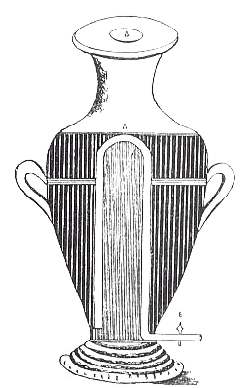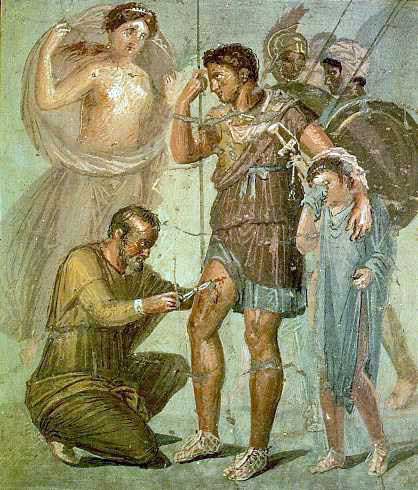|
|
Medizinische Instrumente im antiken Griechenland Physicians who cut, burn, stab and rack the sick, demand a fee for it which they do not deserve to get. Herophilos (or Herophilus) of Chalcedon (about 280 BC) is said to have constructed a portable waterclock used to measure the pulse of patients.
Looking at these instruments we understand why surgery has not been a popular topic in the history of medicine, perhaps because one needs a strong stomach to work even as a historian in this area. As Celsus said of the ideal surgeon, ‘Now a surgeon should be youthful, or at any rate nearer youth than old age, with a strong and steady hand that never trembles, and ready to use the left hand as well as the right; with vision sharp and clear, and spirit undaunted; filled with pity, so that he wishes to cure his patient, yet is not moved by his cries to go too fast or cut less than is necessary, but he does everything just as if the cries of pain cause him no emotion’
References John Stewart Milne Surgical Instruments in Greek and Roman Times. Claredon Press: Oxford, 1907 Celsus’ de Medicina is essentially a Latin translation of a Greek text by Aufidius, a Sicilian; Farrington 1949 p. 127. J. G. Milne, Surgical Instruments in Greek & Roman Times, Ares Publishers, Inc. 1991 Keith Wilbur, Antique Medical Instruments, Schiffer Pub Ltd; Revised edition, 1993 Elisabeth Bennion, Antique Medical Instruments, Univ of California 1979
| ||||||||||||

